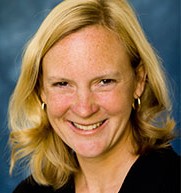 Jennifer Hockenbery is Professor of Philosophy at Mount Mary University. We invited her to answer the question “What does philosophy of religion offer to the modern university?” as part of our “Philosophers of Religion on Philosophy of Religion” series.
Jennifer Hockenbery is Professor of Philosophy at Mount Mary University. We invited her to answer the question “What does philosophy of religion offer to the modern university?” as part of our “Philosophers of Religion on Philosophy of Religion” series.
In order to advocate for philosophy of religion at a modern university, one must first decipher what is the vocation of the modern university. While different institutions have different areas of specialization and different mission statements, one common goal is that a university is a community that centers itself on the investigation of common questions of human experience: What is Happiness? What is Virtue? What are the possibilities for human knowledge? How can we best form a social community that benefits individuals? Such questions certainly pertain to the empirical and social sciences, the arts, and professional degree programs, but the discipline that continually reminds all the other disciplines of the central questions is philosophy: the nagging mother of all disciplines. As such philosophical questioning and thinking must be integrated into every division and department in a University.
The philosophy of religion, as a sub-discipline of philosophy, serves its role in the university by asking questions about religious experiences. Unlike anthropology, philosophy of religion does not ask for a description of religious practices but asks philosophical questions about the metaphysics, the axiology, and the ethics of specific religions. While philosophy of religion began in the European Enlightenment as a method of using philosophy to prove or disprove certain philosophical claims, the discipline is more broadly construed in contemporary academia. For example, a philosopher of religion might discuss the truth value of a specific religious claim by using logic and/or empiricism. But a philosopher of religion might also simply question what a specific religious faith declares ontologically or axiologically—what a specific faith suggests is most real or has most value. A philosopher of religion might also consider the topic of religion generally asking questions about the difference between faith and reason, discussing the role of religious experience in psychological well-being, and considering the role of gender as part of religious experience. Finally, a philosopher of religion might consider how a religion has influenced philosophical thinking throughout history.
In my own work I see myself doing three types of philosophy of religion. First, I am interested in the philosophical systems inherent in Christian thought. I teach classes and write articles on Christian Philosophy in which I explore what Augustine, Thomas Aquinas, Martin Luther, Hildegard of Bingen, Edith Stein and other Christians said philosophically about the role of philosophy, reason, and faith in pursuing Truth as well as what they said about the nature of the self and the role of the mind and body in the individual. Second, I am interested in the question of religion and faith generally as a valid or invalid way of truth seeking. In my course, Philosophy of Religion: Reason and Faith, students read Hume, Kierkegaard, Freud, James, Nietzsche, Daly, and Beauvoir in order to think deeply about the role of faith in science, ethics, psychology, and gender roles. Third, I am interested in the way the religions of different philosophers influenced their writing, even and especially their secular writing. For example, discussing Kant, Hegel, Feuerbach, and Nietzsche’s Lutheran roots opens up important ways of understanding these thinkers insights. Understanding Judith Butler’s Judaism and Simone de Beauvoir and Donna Haraway’s Catholicism deepens a reader’s understanding of these thinker’s place in intellectual history.
As the contemporary academy continues to seek a deeper understanding of central human questions, the role of philosophy and philosophy of religion continues to be central. Philosophers of religion require that we apply philosophical thinking in the study of religion and also that we consider the ways religious commitments might properly limit philosophical thinking. As such philosophers must critically examine their own disciplines as much as they examine others.
